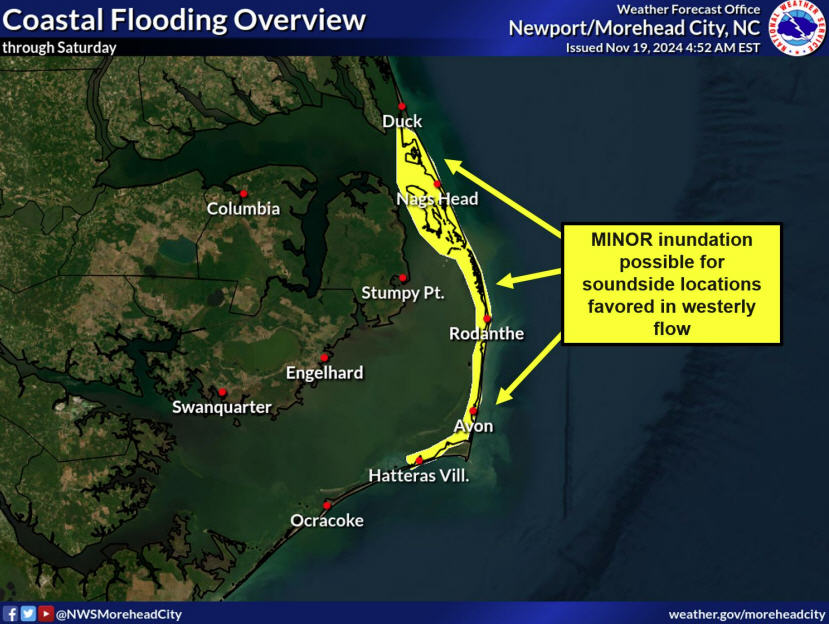Judge Boyle spins some surprising notions in status conference
By JAMES LEA
Boyle opened today by calling on Derb Carter of the Southern Environmental Law Center (SELC) to report on the successful implementation of the National Park Service’s off-road vehicle plan and final regulation and the consent decree, which some people apparently believe remains in effect long past its expiration date.
The judge also asked for Carter’s thoughts on how the CHAPA lawsuit might affect proceedings in his jurisdiction.
Carter stated that everything was going according to plan. It’s another good season for the protected species, he said, especially the sea turtles, and the public is taking well to the beach-driving permit requirement. The educational component of the permitting process is teaching visitors better beach driving techniques, and law enforcement actions in the seashore are down.
However, Carter noted that there are legislative initiatives underway in both houses of Congress to invalidate the new NPS rules and return to the interim protected species management plan management plan. It became effective in July, 2007, was publicly vetted under the requirements of the National Environmental Policy Act and was published with the U.S. Fish and Wildlife Service’s biological opinion that the interim policy would work just fine.
“What do you mean ‘interim plan’?” Judge Boyle interrupted. “That was no plan at all.”
Derb Carter agreed that the interim management plan had no beach route designations for ORVs and pedestrians.
The judge asked Carter what experience he has had with Congress vacating the National Environmental Policy Act., then went on to liken the prospect of Congressional intervention in the Cape Hatteras National Seashore beach access issue to “repealing the Declaration of Independence.”
Derb Carter observed that Congress wrote the laws, so Congress can amend or repeal them.
But Boyle’s thought process continued. Why not just pave the beach, he said, and open it to all drivers all the time, like a big amusement park, no discrimination. Anyone who wanted to could walk to Cape Point.
“Or just create ramps in the Grand Canyon National Park so everyone could walk down to the river,” he said.
Derb Carter noted that there has been no Senate action on the legislation to overturn the new NPS management rules, though the bill passed in the House. He expressed hope that the June 27 subcommittee hearing will be as far as the bill goes.
Boyle then asked about the CHAPA suit challenging the NPS final rule and plan.
Carter responded that the NPS must provide the District of Columbia court and the plaintiff its administrative record on the rule-making process and implementation by Aug. 31. He reported that Judge Sullivan conducted a telephone status conference yesterday and said he is considering transferring the case to Boyle’s court.
All parties have until Aug. 6 to file objections to the transfer.
Carter said that SELC is not going to oppose it, because the case belongs in eastern North Carolina. All parties are in this venue, he said, plus the public’s interest is here and the court’s (Judge Boyle’s) expertise on the issues is well developed.
Boyle seemed to agree, noting that “forum shopping” – a plaintiff tactic for choosing a court thought most likely to be favorable to its claim – was always a negative. Carter agreed that CHAPA’s decision to file its suit outside of the Eastern District for North Carolina was definitely forum shopping, and so the case should be transferred.
The judge and Derb Carter engaged in solemn head nodding.
Returning to the implementation of the new NPS rule and management plan, Boyle said that the plan seems to have hit NPS’s target goals. Law enforcement statistics are improved. There are fewer break-ins, fewer incidents involving vehicles and alcohol. Public safety is clearly benefitting from the new rule and plan.
Rudy Renfer, the government attorney representing the NPS, stood to state to the court that the new regulations are a tremendous success.
He said decreased law enforcement in the seashore reflects more safety for citizens as well as animals. Revenues from permit sales are allowing expansion of NPS resources, including the hiring of four new rangers. Renfer said he was not aware of any negative economic impact of the new NPS plan because the number of visitors to the seashore is increasing every year.
On the prospect of Congressional action on the beach access issue, Rudy Renfer said that the U.S. Department of Justice and the Department of the Interior are making their voices heard.
On the CHAPA suit, Renfer said he had contacted the Department of Justice to suggest transferring the case to Judge Boyle when it was initially filed in February. He didn’t know why his advice had been disregarded. However, he told the court, he now has reason to believe a transfer may be made.
Renfer introduced Darrell Echols, deputy seashore superintendent who will become acting superintendent upon Mike Murray’s official retirement on July 31.
Echols reported dramatic increases in the numbers of sea turtle nests and piping plover and oystercatcher chicks fledged this season. Park visitors have increased by 8 percent, he said, and 16,952 beach driving permits have been sold. Within the past few days, he said, Cape Point has been reopened to pedestrians.
Boyle then offered a novel view of the access restrictions. It is conceivable, he suggested, that there are now more beach drivers than in pre-permit days. If you buy a license to fish, he said, you will go out and fish. If you buy a permit to drive on the beach, you will not waste your money, you’ll drive on the beach. (No reference was made to the limited amount of beach open for driving.)
And people who pay for that privilege, he went on, will have more interest in protecting the resources than those who used to drive on the beach for free. They’re likely to keep themselves and others in line with the rules. The anti-regulation litigation and legislation, the judge said, would detract from that spirit.
Have you begun keeping statistics on pre-permit and permit driving, the judge asked Echols. Echols said park officials have not considered that but that they can.
After extending courtroom courtesy to Dare County manager and attorney Bobby Outten and attorney Tony Hornthal of Elizabeth City, who represents the defendant-intervenors, to ask if the intervenors had any comments, Judge Boyle announced that the next status conference will be convened in December.
After less than 30 minutes in session, he then closed the conference and declared a recess.
(Jim Lea lives in Chapel Hill and also owns a home in Buxton. He is a professor of family medicine at the University of North Carolina at Chapel Hill.)







